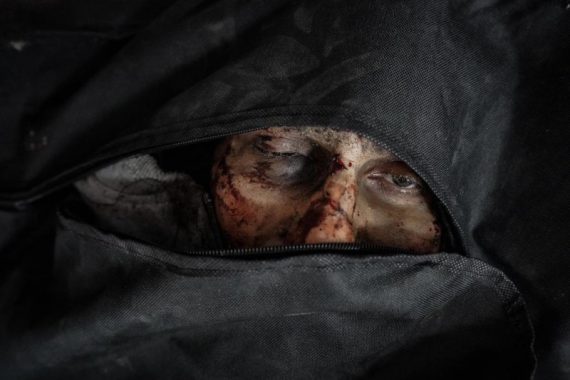I
srael’s attacks, especially those targeting civilians and civilian infrastructure, displacing civilians and making them targets of attack on the way to migration, and leaving them without food, water, shelter and medical care are acts that may constitute many different types of war crimes, crimes against humanity, or crimes of ethnic cleansing and even genocide, which are more serious crimes.
On October 7, following the Hamas attacks, Israel launched and intensified its attacks on Gaza, which have resulted and continue to result in violations of international law and serious humanitarian disasters.
Investigating these grave acts, which are very serious in terms of their consequences, identifying and prosecuting those responsible, and punishing the guilty must be at the top of the international community’s agenda. Only through prosecutions will it be possible to prevent similar atrocities and ensure that those responsible do not go unpunished.
The nature of Israeli acts
The most striking aspect of Israel’s military attacks on Gaza has been the deliberate killing or maiming of civilians. Israel’s air and ground attacks directly target locations where civilians are known to be present, and deliberately kill or injure civilians.
The targeted bombing of settlements, civilian migration routes, civilian shelters, and refugee camps for displaced Palestinians has become routine. Israel purposefully targets, kills, injures, or arrests civilians both in Gaza and in the West Bank.
Israel is forcedly displacing Palestinians living in the Gaza Strip. The deliberate killing of civilians, who should be protected from the effects of war, is carried out through direct attacks and the targeting of civilian infrastructure. A similar method of attack is the targeting of hospitals and health facilities. Targeted civilian infrastructure also includes schools and places of worship.
Read: Nakba 2023 in Gaza
While each of Israel’s acts constitute war crimes, it can be argued that they are also crimes against humanity as they contain elements of a systematic attack against a specific community. Examining the nature of these acts, it is even possible to find elements of ethnic cleansing and genocide since the forcible transfer of a civilian population or the creation of an ethnically homogeneous geographical area through mass murder constitute the crime of ethnic cleansing, while the crime of genocide requires evidence of an intention to exterminate the Palestinians in whole or in part.
Israel is the occupying party which faces the military actions of Palestinian armed groups that fight against it. Claiming to be acting in self-defense, Israel has already exceeded the legal limits of this right and based on the disproportionality of the force it uses and the nature of the persons and places it targets, it has become a state that initiates and carries out illegal attacks. Such actions constitute the crime of aggression, which is defined as the planning, preparation, initiation, and execution of an “act of aggression” by political or military decision-makers.
Prosecution of those responsible
The abovementioned offences are crimes that give rise to personal criminal liability. Those who commit such crimes, regardless of their official position, must be tried and punished for them. In accordance with the relevant international conventions, they must first be tried by their own national judicial systems.
However, it is difficult to imagine that Israel would prosecute its own citizens for such crimes. It is precisely in such cases that the International Criminal Court (ICC), which was established to intervene in the judicial process, has the power to try those who should be tried but are not—or are not tried properly. The ICC has jurisdiction to try nationals of states party to its founding treaty, or nationals of any state party, who commit any of the above crimes on the territory of a state party.
Palestine became a state party to the ICC Statute on January 2, 2015, when it deposited its instrument of accession with the UN Secretary-General. The statute entered into force for the state of Palestine on April 1, 2015. Before becoming a party to the ICC Statute, the Palestinian government issued a declaration under Article 12(3) of the statute requesting the court to investigate crimes committed in the Palestinian territories. Through this declaration, the Palestinian state declared its acceptance of the court’s jurisdiction over crimes allegedly committed “in the Occupied Palestinian Territory, including East Jerusalem, since 13 June 2014.”
At the request of the state of Palestine, the ICC Prosecutor opened a preliminary examination on January 16, 2015. Both the prosecutor and Pre-Trial Chamber I, in their decisions of February 5, 2021, concluded that the court’s jurisdiction extends to the Palestinian territories occupied by Israel in 1967 and thereafter, including Gaza, the West Bank, and East Jerusalem.
Despite the uncertainty about the future of its investigations and trials, the fact that crimes committed in the Palestinian territories are being investigated should be recognized as an important step towards meeting at least some of the demands for justice. As a result of this process, the ICC is already investigating crimes committed in the Palestinian territories.
In this context, the Israeli attacks on Gaza, which began on October 7, 2023 also fall under the jurisdiction of the court. Although the attacks were carried out by Israel, which is not a party to the ICC, and its nationals, it should be recognized that the perpetrators all fall under the jurisdiction of the ICC, as the attacks took place in the Gaza Strip, which is part of the Palestinian territory. As mentioned above, since the ICC’s jurisdiction extends to the Palestinian territories occupied by Israel, Israeli actions in the West Bank and Jerusalem and the perpetrators of these actions fall under the jurisdiction of the court.
Indeed, the ICC Prosecutor made a clear statement that the actions of Hamas and Israel fall within the jurisdiction of the ICC. The prosecutor emphasized that the victims of the attacks were innocent persons with rights under international humanitarian law, which are part of the Geneva Conventions and give rise to criminal liability under the ICC Statute.
Prior to the attacks that began on October 7, the prosecutor’s investigation covered only war crimes, one of the four groups of crimes under the ICC Statute. However, since the attacks that are ongoing involve unlawful attacks and mass killings of civilians, the crimes of aggression, crimes against humanity, ethnic cleansing, and even genocide should also be investigated and prosecuted.
In this case, in the future, the court should be expected to open investigations, bring cases, and issue arrest warrants, especially against Israeli civilian or military decision-makers. Indeed, a number of states parties to the ICC Statute, using their powers under Article 13(a) of the statute, have notified the ICC Prosecutor of the current situation in Gaza and requested an investigation into the attacks. These states are South Africa, Bangladesh, Bolivia, Comoros, and Djibouti.
In a statement following the receipt of these requests, the Office of the Prosecutor stated that it is currently conducting an investigation into the events in the Palestinian territories, noting that the previous investigation, opened on March 3, 2021, covered crimes committed in the West Bank, including Gaza and East Jerusalem, since June 13, 2014 and the attacks that took place on October 7, 2023.
However, it should be emphasized that these investigations and trials face significant challenges. Under ICC Statute, individuals cannot be tried in absentia and must be brought before the court for trial. Once the investigation has begun, the Pre-Trial Chamber will issue an arrest warrant at the request of the prosecutor, if warranted by the evidence presented. The arrest and transfer of an accused person necessarily requires the close cooperation of the states parties concerned. The court does not have such arrest powers and mechanisms.
The question remains whether the international community will provide the necessary support to the court in this regard. For effective and successful investigations, prosecutions, trials, and sentencing, the court needs the cooperation of states parties, non-states parties, and other relevant sources of information. Section 9 of the ICC Statute provides for “international cooperation and mutual legal assistance.” Accordingly, states parties have a general obligation to “cooperate fully” with the court in the investigation and prosecution of crimes within its jurisdiction.
The court also requires the cooperation and assistance of states parties in the enforcement of sentences of imprisonment. Prisons are selected by the court from among the states that have notified the court of their willingness to receive convicted persons. Therefore, the willingness of eligible states and effective enforcement measures are crucial.
Recommended
The demands of justice
Israel’s direct targeting of civilians, civilian settlements, and civilian infrastructure in the Gaza Strip, and the deliberate killing or wounding of hundreds of civilians on a daily basis, constitute unprecedented violations of international humanitarian law and comprise corresponding crimes.
While almost all of the acts constitute war crimes, they can also be said to constitute crimes against humanity, as they are elements of a systematic attack against a specific community. In the context of the nature of the acts, there are even elements of the crimes of ethnic cleansing and genocide.
It is the legal and moral responsibility of the international community to investigate all these grave acts and to identify, prosecute, and ultimately punish those responsible. Israel’s attacks on Gaza since October 7, 2023 require the International Criminal Court to broaden the scope of its investigation in Palestine, which it has been conducting since 2015, to include not only war crimes but also crimes against humanity and even genocide.
The States parties’ support for the court in the upcoming period will be crucial to the success of the investigations and trials. In this sense, despite any doubts about the future of the investigations and trials, the fact that crimes committed in the Palestinian territories are under criminal investigation is an important step towards fulfilling at least some of the demands of justice.





